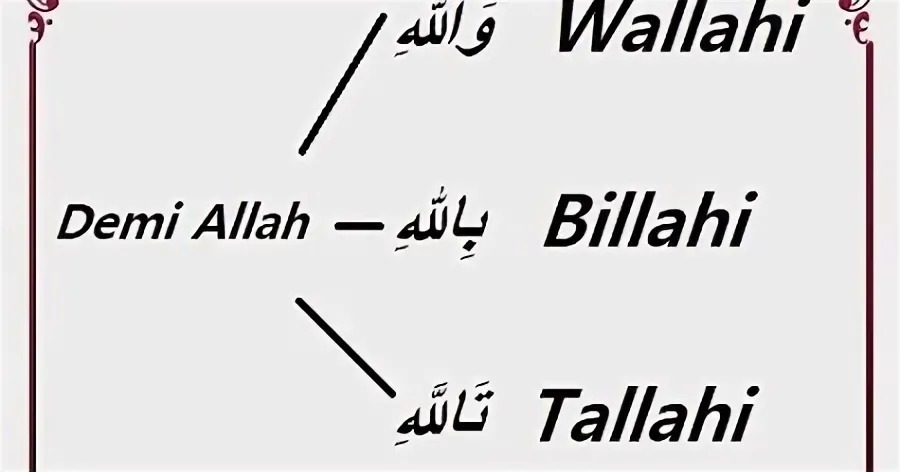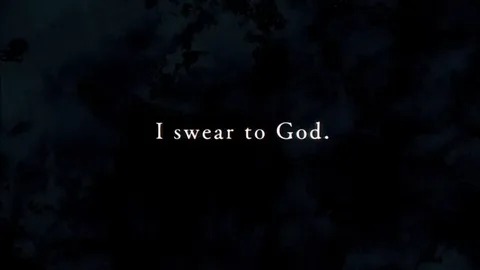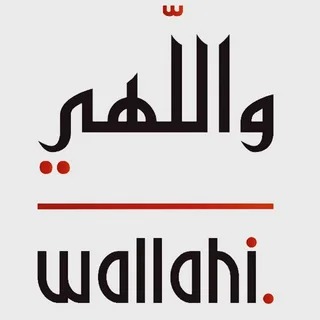“Wallahi” is a versatile term that transcends language barriers and cultural divides. Its widespread usage and unique significance make it an intriguing subject of exploration. This article on Arabian Tongue website aims to shed light on the origins, cultural relevance, and various applications of “Wallahi meaning.”
Unveiling the Essence of “Wallahi”: A Comprehensive Exploration

In a world where diverse cultures and languages converge, certain terms and expressions might pique your curiosity. One such term is “Wallahi.” You may have heard it used in various contexts, but what exactly does it mean, and why is it significant? Join us as we embark on a journey to unravel the meaning, origins, and cultural significance of “Wallahi.”:
Recommend: Alhamdulillah Meaning
To truly understand the essence of “Wallahi,” we must delve into its linguistic roots. This term has a rich history that has shaped its meaning and usage over time.
Despite its Arabic origins, “Wallahi” has found its way into the everyday language of people from diverse cultural backgrounds. Let’s explore how this expression has transcended borders and become a part of global lexicon.
In certain situations, saying “Wallahi” carries immense weight and signifies a solemn oath. Discover the contexts in which this expression is invoked and the significance it holds.
Just like any language, the usage of “Wallahi” can vary from region to region. Explore the nuances and adaptations of this term in different locales.
When to Use Wallahi
Language is a powerful tool that not only facilitates communication but also reflects the culture and traditions of a society. “Wallahi” is an Arabic phrase that has made its way into colloquial language, transcending borders and languages. Understanding when to use “Wallahi” appropriately can enhance your conversational skills and deepen your understanding of cultural nuances:
Read more: Inna Lillahi Wa Inna Ilayhi Raji’un
Informal Usage
In informal settings, “Wallahi” is often used among friends and family to add emphasis to a statement. For example, if someone says, “I’ll be there at 7:00, Wallahi,” it signifies a strong commitment to punctuality.
Formal Contexts
In formal contexts, “Wallahi” may still be used, but its usage should be more measured and reserved for situations where sincerity is of utmost importance. It can be employed in legal proceedings, contracts, or when giving one’s word in professional settings.
Emphasizing Truthfulness
“Wallahi” is a powerful tool to emphasize one’s truthfulness. When someone swears by Allah using this phrase, they are essentially staking their reputation and integrity on the accuracy of their statement.
Social and Cultural Significance
Within Arabic-speaking communities, “Wallahi” carries significant social and cultural weight. It serves as a symbol of trust, and individuals who consistently keep their promises while using “Wallahi” earn a reputation for reliability and honesty.
When to Avoid Using “Wallahi”
While “Wallahi” can enhance communication, it should be used judiciously. Avoid using it in jest or in situations where honesty is not paramount, as misuse can lead to cultural insensitivity.
Alternatives to “Wallahi”
If you are uncomfortable using “Wallahi” or wish to convey sincerity differently, there are alternatives. You can say, “I promise” or “I assure you” to convey a similar commitment to truthfulness.
Read about: Sahih al-Bukhari
Wallahi Benefits

While “Wallahi” finds its origins in Islam, its underlying principle of truthfulness transcends religious affiliations. It encapsulates the universal values of honesty, integrity, and trustworthiness. Consequently, people from diverse backgrounds can embrace and benefit from this concept in their daily lives:
- Enhanced Trustworthiness: Incorporating “Wallahi” into your communication repertoire signals to others that you hold truth and honesty in the highest regard. This commitment to truthfulness naturally enhances your reputation as a trustworthy individual, both personally and professionally.
- Strengthened Relationships: Trust is the cornerstone of any healthy relationship. By consistently upholding the values symbolized by “Wallahi,” you can cultivate deeper and more meaningful connections with friends, family, and colleagues. People are more likely to confide in and rely on individuals who consistently exhibit sincerity.
- Improved Self-Integrity: Embracing “Wallahi” is not merely about outward appearances but also about personal growth. It encourages self-reflection and the development of strong moral character. Living by this principle fosters self-integrity, ensuring that your actions align with your beliefs.
- Conflict Resolution: In situations of disagreement or dispute, the power of “Wallahi” lies in its ability to de-escalate conflicts. When both parties commit to truthfulness and transparency, finding common ground becomes more attainable, leading to smoother conflict resolution.
Learn Now: Arabic Language Kids Course
FAQs
Is Wallahi exclusive to a specific culture or religion?
No, Wallahi is not exclusive to a specific culture or religion. While it has Arabic origins and is significant in Islamic culture, it is used by people from various backgrounds.
Can Wallahi be used casually, or does it always carry a weight of sincerity?
Wallahi can be used both casually and with sincerity, depending on the context. In informal conversations, it may be used to emphasize a point, while in more solemn situations, it signifies a genuine oath.
Are there similar expressions in other languages?
Yes, many languages have similar expressions that emphasize sincerity or truthfulness. These expressions vary from culture to culture.
How can I use Wallahi appropriately in conversation?
Using Wallahi appropriately requires an understanding of the context and the level of sincerity required. It's best to use it sparingly and genuinely when making a solemn declaration or emphasizing a point.
Does the usage of Wallahi vary between generations?
Yes, the usage of Wallahi can vary between generations. Younger generations may use it more casually in everyday conversations, while older generations may reserve it for more solemn occasions.
Conclusion
In conclusion, “Wallahi” is more than just a word; it’s a symbol of cultural exchange and a testament to the power of language in connecting people worldwide.

